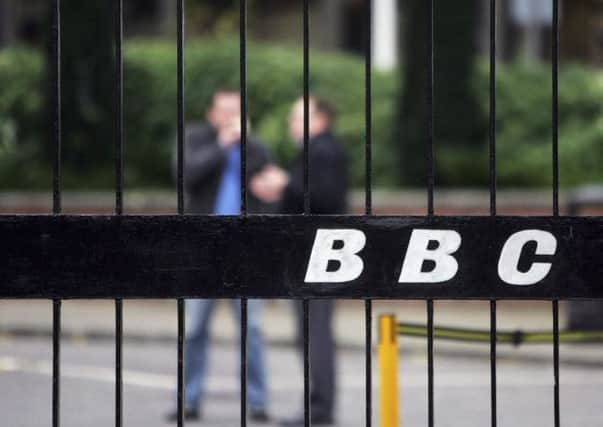Leaders: TV licensing fee no longer justified


Westminster’s culture, media and sport select committee has come to the conclusion that the BBC’s £4 billion income from the licence fee is no longer a sustainable way of financing the corporation.
The report says we need to envisage a time when the existing funding mechanism is replaced by a combination of subscription fees and what it calls a “broadcasting levy” on households.
Advertisement
Hide AdAdvertisement
Hide AdThe MPs’ inquiry comes in the run-up to the renewal of the BBC charter, which is being seen by some as an opportunity to fundamentally rethink the UK’s public service broadcasting.
The MPs’ recommendations are long-term, and nebulous. However, the time to start thinking about a new BBC, fit for the 21st century, is now.
The committee chairman, Tory MP John Whittingdale, is right when he says the BBC “remains a widely admired and trusted institution, and fulfils many important functions both at home and abroad”.
But at what price?
There can be little doubt that the old British model for broadcasting, upon which many of the funding assumptions are based, has long been broken.
It is no longer the case – and has not been for decades – that the BBC provides the vast bulk of the country’s quality drama and serious current affairs programmes, leaving lower-quality populism to the commercial channels. These days ITV shows such as Broadchurch are among the best drama on the small screen, and broadcasters such as Sky are makers of world-class quality television.
Furthermore – and here, we admit, newspapers have an interest to declare – there are questions about whether the monolithic power of the BBC disrupts the market in news. A publicly-funded news service is unfair competition to news organisations in the unsubsidised private sector.The MPs’ report leaves many questions unanswered. What would this “broadcasting levy” be, and how would it be collected, exactly? Wouldn’t this replicate many of the drawbacks and iniquities of the current licence fee?
The better solution is much simpler. The truth is there is no justification any more for a state broadcaster subsidised by what is effectively a TV version of the poll tax. The use of public money to finance the BBC is wrong, and the subsidy should end. BBC output should be supported by whoever is prepared to pay for it directly, either through advertising or subscription.
This would produce a level playing field in the media market, across all its various forms – sport, news, drama and entertainment.Auntie has given all of us some wonderful moments. But time has come for her to stand on her own two feet.
A new lease of life on Calton Hill
Advertisement
Hide AdAdvertisement
Hide AdThe former Royal High School building on Calton Hill is one of Edinburgh’s architectural jewels.
Its setting is magnificent, looking out over to Holyrood and Arthur’s Seat. And its pillars and pediments are one of the city’s greatest examples of Greek Doric neoclassicism. It is perhaps architect Thomas Hamilton’s finest achievement.
The building has other resonances. It was refurbished as the intended home of the Scottish Assembly in anticipation of a Labour victory in the 1992 general election, only for those hopes to be dashed and the building to stand empty for many years.
Parts were used for various government functions, including at one stage the Crown Office, but it has struggled to find a use.
At various stages it has been mooted as an art gallery showcasing photography, and as a repository for the vast archive built up by Edinburgh arts impresario Ricky Demarco.
But now a developer has finally come up with a plan for a super-luxury hotel complex – and the proposal has immediately angered conservationists.
Protesters now want the building to be “mothballed” until a use can be determined that can better showcase its architectural magnificence.
This is misguided. The best way to preserve a building is to use it and make a success of it.
Advertisement
Hide AdAdvertisement
Hide AdThis is only common sense. If a developer is making money out of it, care will be taken to preserve it in all its lucrative glory.
But if it is “mothballed”, however carefully, its fall into disrepair is inevitable, while it continues to be a drain on the public purse.
The former Royal High School needs to be reused and loved anew.
FOLLOW US
SCOTSMAN TABLET AND MOBILE APPS